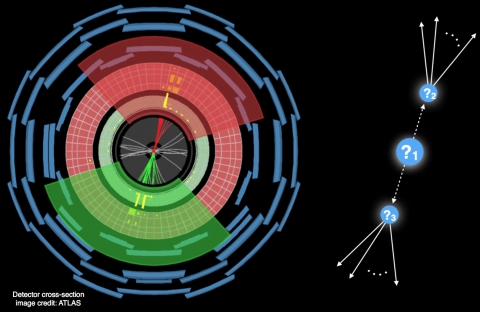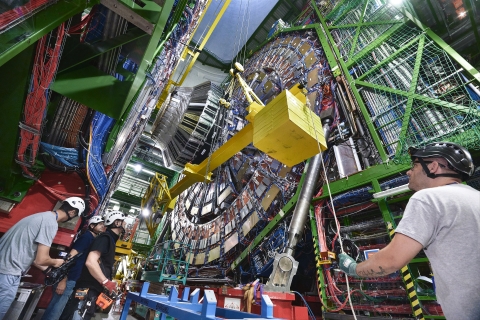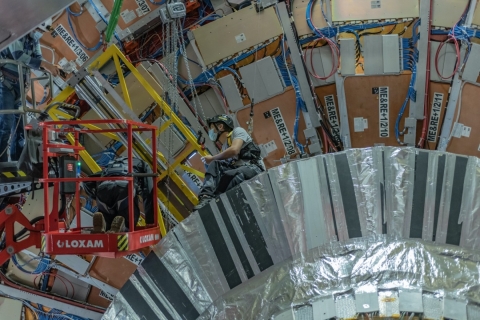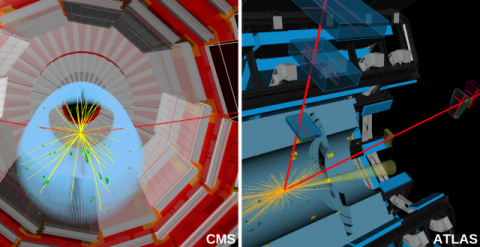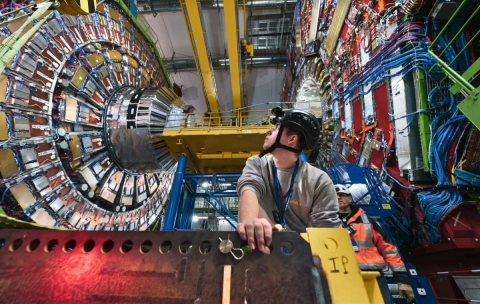CMS
Machine learning ushers in a new paradigm for particle searches at the LHC
Searching for physics beyond the Standard Model (BSM) is a major part of the research programme at the LHC experiments. Nearly all of these searches pick a signal model that addresses one or more of the experimental (e.g., dark matter) or…
Read moreCMS GEMs are changing gear
It can be called the achievement of the year for the CMS Muon GEM group, culminating on a decade-long effort and development of knowhow. The Gas Electron Multiplier (GEM) is a Micro Pattern Gaseous Detector (MPGD) widely used in particle physics.…
Read moreWhat is the likelihood function, and how is it used in particle physics?
In statistical data analysis, “likelihood” is a key concept that is closely related to, but crucially distinct from, the concept of “probability”, which is often a synonym in everyday English. In this article, I first lay some necessary…
Read moreCMS restarts and continues working under Covid-19 conditions
One of the major objectives of CMS for LS2 is an early phase-2 electronics upgrade of the Cathode Strip Chambers (CSC), located on all three endcap disks, and the installation of one layer of triple Gas Electron Multiplier Chambers (GEM) on the…
Read moreCERN experiments find first evidence for rare Higgs boson decay
The strength of the interaction between the Higgs field and a particle determines the mass it obtains from the Higgs and it is a mystery why the interaction strength is different for different particles. This puzzle is exacerbated as the leptons,…
Read moreHow to search for new physics without knowing about it?
BSM searches at the LHC increasingly profit from ML techniques since this approach allows more general searches that minimise the probability of missing evidence of new physics. Very recently, the ATLAS collaboration has published a novel approach […
Read moreLHC experiments ramp-up activities
Around the world,research centres, laboratories and universities have closed as a response to the COVID-19 pandemic — forcing an increasing number of researchers to work from home. Researchers teleworking coordinated with colleagues who had to…
Read moreCMS weighs in for the top quark
The top quark has a special position in the zoo of elementary particles, being the heaviest as well as one of the rarest fundamental particles ever sighted. With a mass of about 173 GeV, it has 40 times the mass of its partner, the bottom quark and…
Read moreTowards high-precision luminosity for CMS in Run 3 and beyond
Luminosity is a key parameter for any collider-based high energy physics experiment as it links the interaction rates observed in an experiment to the cross sections of physics processes. Therefore, it is a key ingredient to most major analyses…
Read moreHeterogeneous computing efforts for high-energy physics experiments
Substantial improvements to the current experiments at the LHC are underway, and new experiments are being proposed or discussed at future energy-frontier accelerators to answer fundamental questions in particle physics. At future hadron colliders,…
Read more
